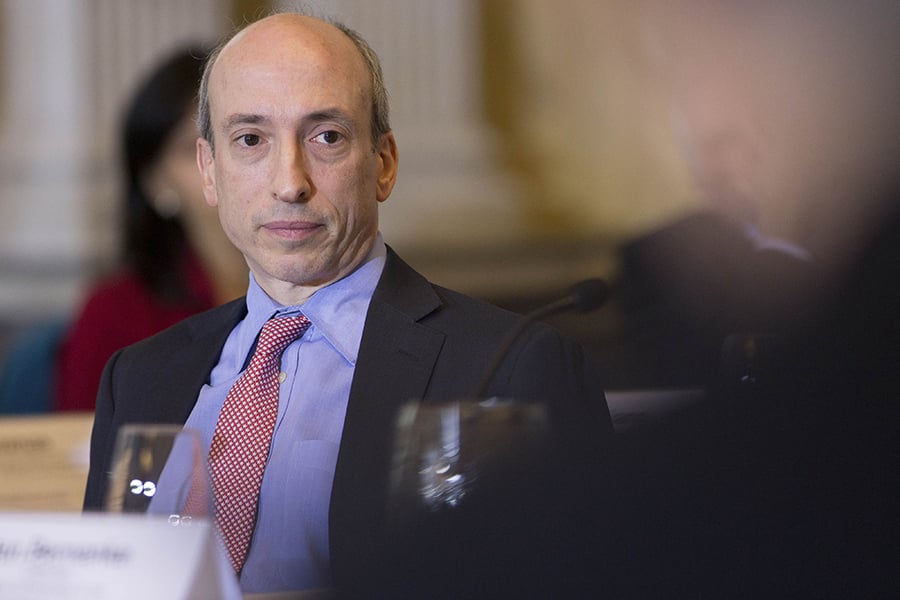

Securities and Exchange Commission Chairman Gary Gensler laid out a laundry list of concerns related to special purpose acquisition companies, delivering his strongest signal yet that he’ll push for much tougher rules for the blank-check firms. Gensler, who’s repeatedly raised issues with SPACs since taking over in April, gave a road map Thursday for areas where the regulator may need to step up regulation.
He said he’s concerned that retail investors putting money in a firm taken public by merging with a blank-check company may be at a disadvantage compared with backing a traditional initial public offering.
“Currently, I believe the investing public may not be getting like protections between traditional IPOs and SPACs,” Gensler said in remarks prepared for the Healthy Markets Association, which represents institutional investors. “Further, are we mitigating the information asymmetries, fraud and conflicts as best we can?”
For more than a year, the SEC has been ringing alarm bells over disclosures around SPACs, which Gensler said now make up more than 60% of U.S. IPOs. The agency has said that it plans to propose new regulations to deal with the booming area as soon as next April, and SEC attorneys have also been stepping up scrutiny of such deals, with Lucid Group Inc. and Digital World Acquisition Corp., which is merging with former President Donald Trump’s media company, disclosing this week that they had received information requests.
In his comments, Gensler said areas of particular concern that he’s asked staff to look into include:

The looming threat of federal funding cuts to state and local governments has lawmakers weighing a levy that was phased out in 1981.

The fintech firms' new tools and integrations address pain points in overseeing investment lineups, account monitoring, and more.

Canadian stocks are on a roll in 2025 as the country prepares to name a new Prime Minister.

Carson is expanding one of its relationships in Florida while Lido Advisors adds an $870 million practice in Silicon Valley.

The approval of the pay proposal, which handsomely compensates its CEO and president, bolsters claims that big payouts are a must in the war to retain leadership.
RIAs face rising regulatory pressure in 2025. Forward-looking firms are responding with embedded technology, not more paperwork.
As inheritances are set to reshape client portfolios and next-gen heirs demand digital-first experiences, firms are retooling their wealth tech stacks and succession models in real time.
